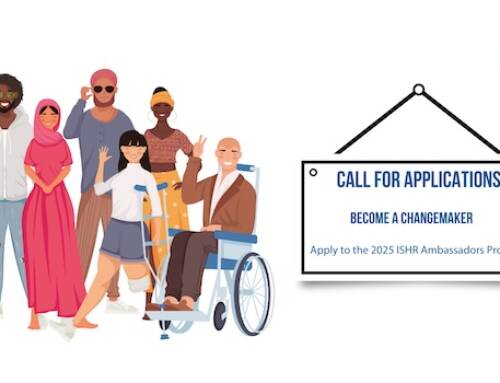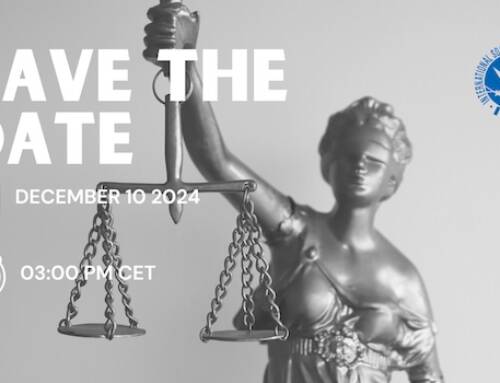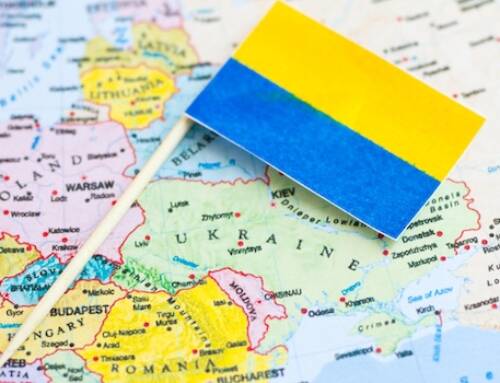
Corona, the World and Human Rights

Blessed is he
who visited this world
in its fateful hours
Fyodor Ivanovich Tyutchev, 1803 – 1873
Tactless criticism?
Human rights activists of the International Society for Human Rights/ISHR have already expressed their concern at the beginning of the massive measures that the remedy against the pandemic could prove to be worse than the pandemic itself. They cite, among others, the humanitarian disasters that could be resulted worldwide and the potential for state abuse of human rights. The proportionality of the measures in the face of other known and curable infectious diseases such as tuberculosis, with well over one million victims annually, also shows that the global community is still far from being able to cope with global crises and problems in solidarity. Are such warnings and criticisms tactless at a time when, after Italy, Spain and France, we are now confronted with American pictures of Covid-19 victims transported in body bags by forklift trucks? In a state of emergency, in which we renounce so much, risk so much, in which we all make small and big sacrifices and encourage each other to be confident and persevering. Where we are so proud of the many everyday heroes who have proven themselves in recent weeks? Proud of an unprecedented solidarity in fateful minutes?
The tact of a human rights defender
Basically for a human rights defender is always a fateful time, terrible pictures of suffering and misery, of dead people, innocent prisoners, victims of violence or humanitarian disasters he always carries in his mind. The call for solidarity is constantly resonating within him.
Humanitarian dangers
Of course, when he thinks of the side-effects of the global shutdown, he is not only thinking of the German Mercedes driver with his all-round airbag, but also of the Indian rickshaw driver, the day labourer who is left without a wage or bread from one day to the next, or the young Russian entrepreneur who wouldn’t even dream of receiving emergency government aid. To the families and their children who are not caught in a basic social security net. The associated social and psychological consequences. The danger that a world economic crisis could be a humanitarian catastrophe for a large part of the world’s population.
The threat to fundamental rights
Of course, he sees the potential that such a crisis brings in the restriction of fundamental rights and freedoms. While here in Germany we are discussing the danger of the application of a temporary “tracking app”, the Hungarian president already has a “Covid-19 Enabling Act” in his pocket and China has long had the unassailable “Big Brother is watching you” legitimacy.
Disproportionalities
Of course, the human rights activist compares the Covid-19 pandemic with, among other things, the world’s deadliest infectious disease, tuberculosis, whose pathogen is carried by about two thirds of the world’s population, which claims over one million victims every year and for which, in contrast to Covid-19, there are cures. At EUR 2 billion a year, this disease could have been eradicated long ago.
Inadequate transnational strategies
And of course he sees that there was no preparation for such a crisis scenario, neither nationally, continental, let alone globally. On the contrary, the globalized world has reflexively retreated into its nation-states, the bulkheads have almost closed down. Even within the 27-year-old state structure of the EU. And while the terrible scenario in Bergamo in northern Italy was followed daily, it was not as if other countries were rushing to help massively from all directions. The ailing Italian health system, which is due not least to the rigid financial policy within the EU, was obviously largely responsible for the high death toll. And after all, that south of “core Europe” has suffered traumatically, financial aid is currently being haggled over within its state solidarity community.
Blessed is he, who visited this world in its fateful hours

Nevertheless, the pictures of the empty streets of the world’s metropolises also have something fascinating, something magical. And there it goes! Almost as if the whole of mankind together stopped the globe. The simultaneous withdrawal into national realms ranging in their own homes, even into one’s own four walls, was a natural and logical reflex. It is also natural that we all need time to digest the shock. Anf for sure it is right and important that we celebrate the people who have shown backbone, civil courage and solidarity during this time. Those who didn’t drool over toilet paper in the supermarkets, but managed the rush at the cash registers and kept “the business running”. But it is also right and important now to take a step outside the door again. We know that it is only a delusion,- that we cannot stop the globe, that the earth keeps turning. And the novel virus has taught us – and still does – that we all shop in the same supermarket and that we are dependent on people with backbone, civil courage and solidarity and not on those who have built a toilet paper bunker. The Second World War had brought the globe to a standstill exactly 75 years ago and, out of this global trauma, drew up a catalogue of principles for a better future for the world community: The Universal Declaration of Human Rights. These experiences from these “traumatic global standstills” carry enormous suffering within them, but this is precisely where the strength for sustainable improvements in the future lies.
– Dr. phil. Carmen Krusch-Grün, ISHR-Germany –





